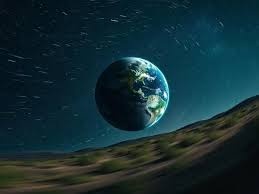July 9 Among Three Days Is the Shortest in Human History

Scientists at St. Petersburg University in Russia indicated that Wednesday (July 9, 2025) may be the shortest day in human history, as Earth's rotation is expected to accelerate like never before.
The scientists also explained that on 3 days this summer, July 9, July 22, and August 5, the day length is expected to shorten by about 1.3 to 1.51 milliseconds compared to the standard day.
They added, "This acceleration is due to changes in Earth's rotation that have been observed since 2020. Atomic clocks, specialized machines that measure time with high precision by monitoring atomic vibrations, have been used to track this phenomenon."
Although the exact cause is still unclear, there are several factors contributing to Earth's rotation acceleration, such as changes in the atmosphere, melting ice caps, Earth's core movement, and weakening of the magnetic field.
They pointed out that "Earth usually takes 24 hours to complete a full rotation around itself, which is 86,400 seconds". While a change of milliseconds may seem slight, it can affect many precise technical systems, such as the Global Positioning System (GPS) and satellite systems, and may disrupt some systems that rely on high-precision time measurement.
Since the 1970s, scientists have been monitoring and studying the minute changes in Earth's rotation. It was found that Earth recorded its fastest day in history on July 5, 2024, when it spun 1.66 milliseconds faster than the usual day.
The world relies on Coordinated Universal Time (UTC), which adjusts to the slow changes in Earth's rotation by adding a "leap second" when necessary. If Earth's rotation acceleration continues, it may become necessary to introduce a "negative leap second" for the first time in human history to balance this acceleration.